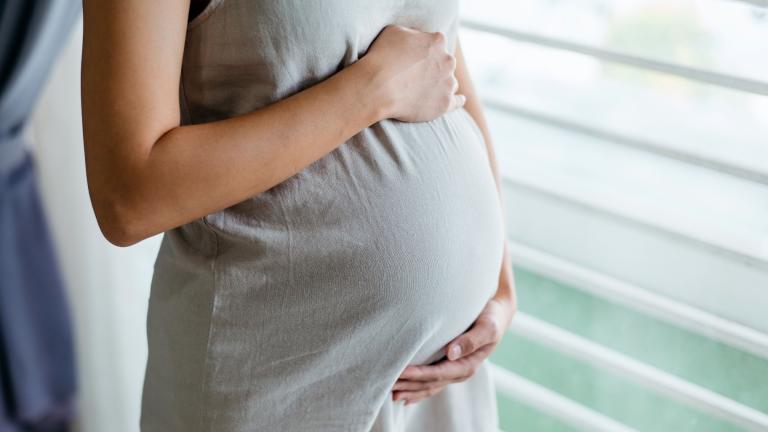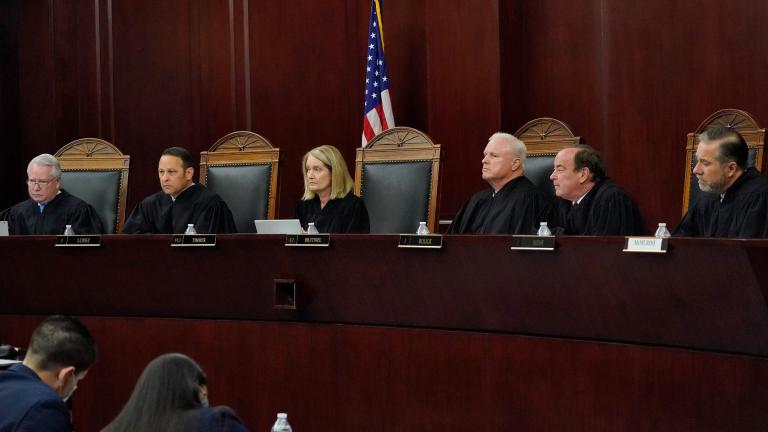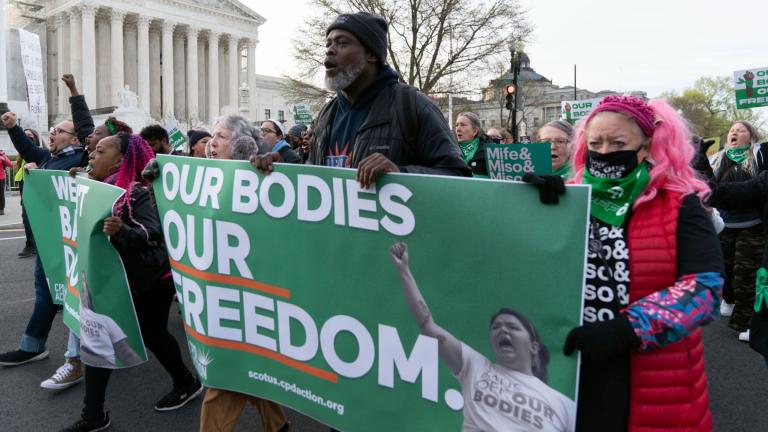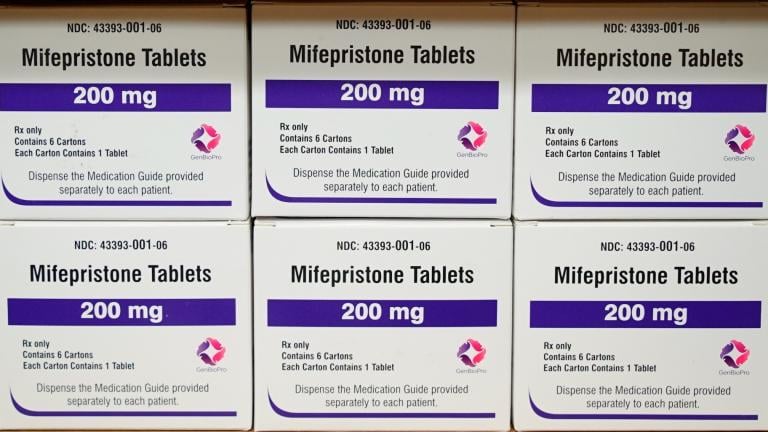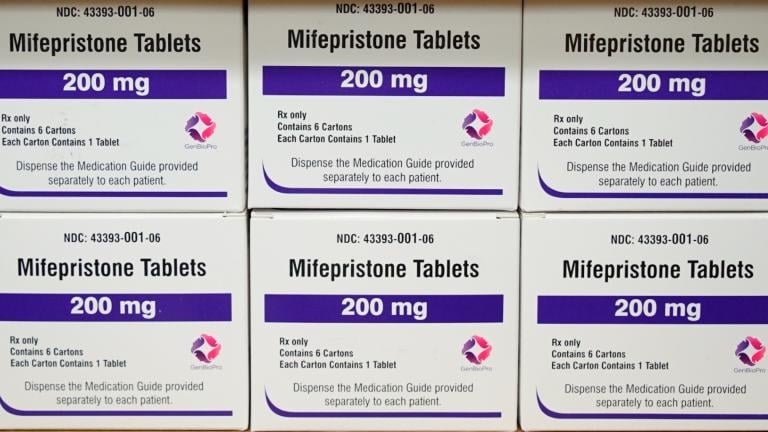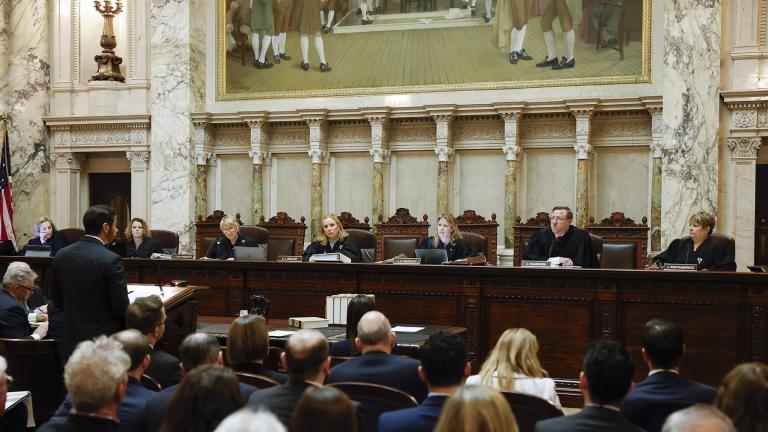The Supreme Court’s recent decision to overturn Roe v. Wade has had an immediate impact on women with unwanted pregnancies. But people who desperately want to have children are also being impacted. Patients undergoing in vitro fertilization, known as IVF, and their doctors, are worried that overturning Roe could impact them as well.
“In states where bills are being introduced defining a fetus as a person, or defining life as beginning at fertilization, this could dramatically change the way in vitro fertilization is practiced,” says Dr. Kara Goldman, medical director of fertility preservation at Northwestern Medicine. “Physicians like myself who practice reproductive medicine are afraid for our patients. What does this mean for a patient’s frozen embryos?”
Now some fear the high court’s ruling could create restrictions on babies made outside the womb.
“When a patient has completed their family, embryos are either donated to research or destroyed. If embryo destruction is outlawed, this will have tremendous ramifications for not only the tens of thousands of embryos — and the families who have created those embryos through careful decision-making between the physician and patient — but importantly will have ramifications for the future practice of IVF and the hundreds of thousands of Americans who rely on this technology to build their families,” says Goldman.
Some worry that IVF patients and physicians in states that have banned abortion may also face a host of legal issues. “In vitro fertilization, like abortion, could be criminalized in the wake of the Dobbs decision,” says Lori Andrews of the Institute for Science, Law and Technology at Chicago-Kent College of Law at the Illinois Institute of Technology. “Under the decision, states are free to treat embryos as people. Each IVF embryo that does not survive could leave the doctor open to homicide charges. If a woman has more embryos than can safely be implanted and wants to freeze some for future use, that would no longer be allowed because we don’t freeze people. Genetic testing of embryos to determine if they have a serious genetic disease would be banned if the couple might opt not to implant an embryo with a serious disease.”

